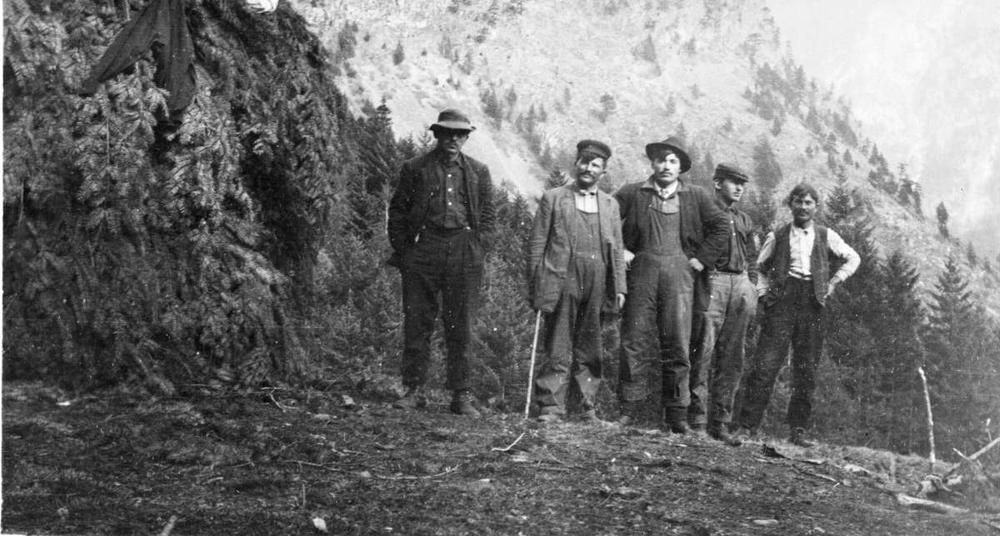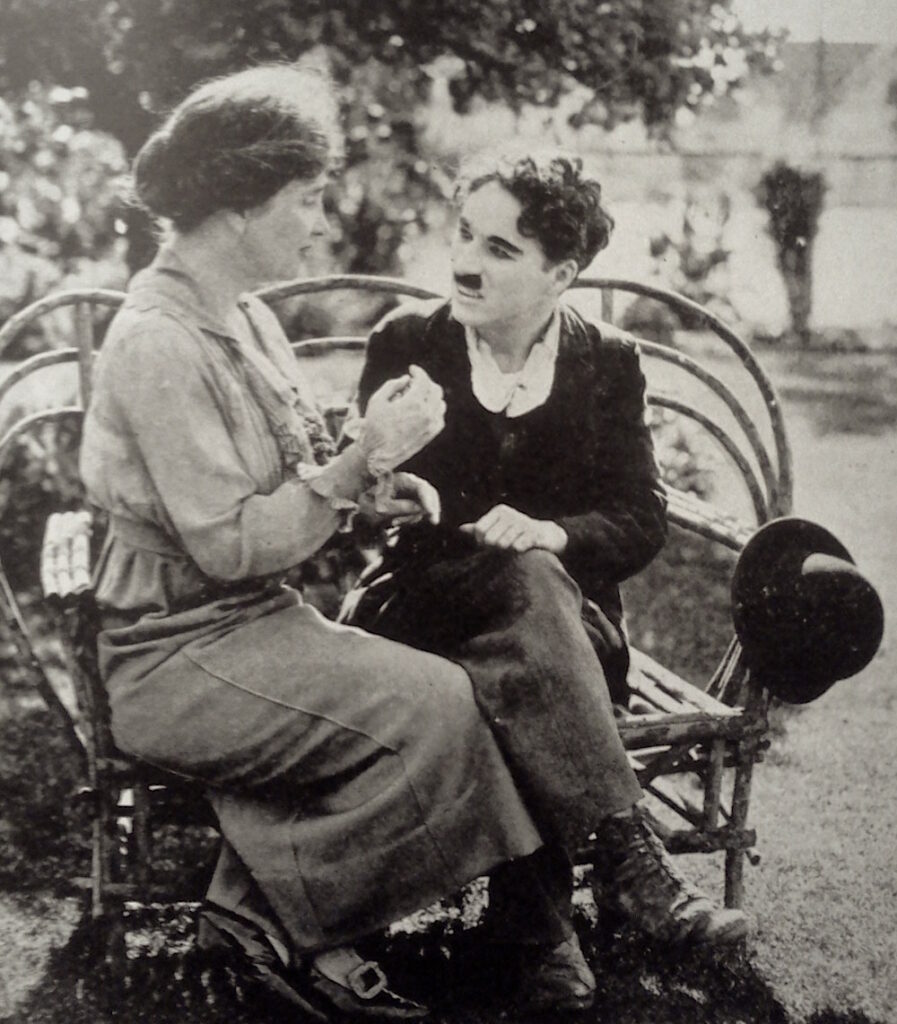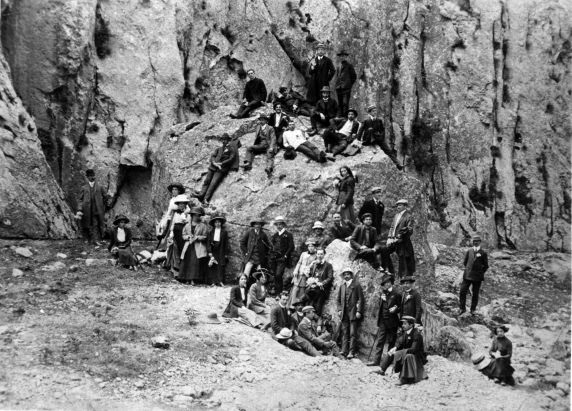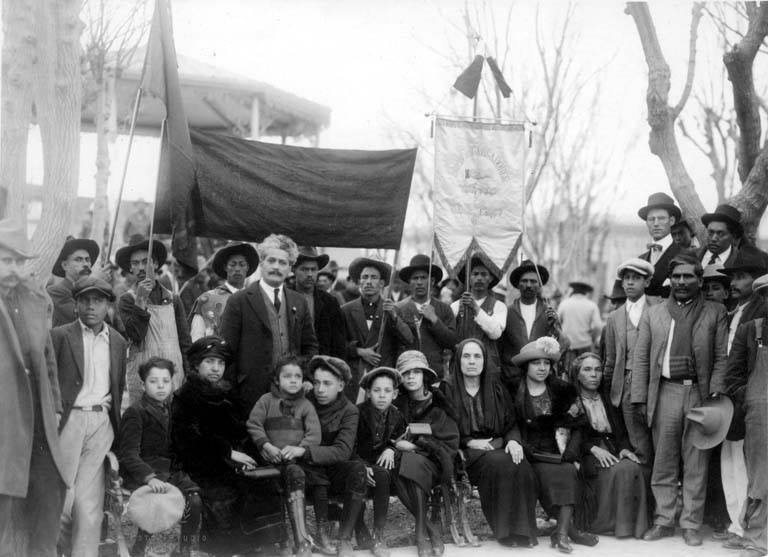
There’s one main mistake people make when they start organizing their workplaces that’s responsible for more stumbles, setbacks, and losses than any other: they don’t really get to know people before they try to take direct action with them.
If people don’t know each other, how can they be expected to take risks together, especially when breaches of trust can put everyone in danger? Some coworkers get cold feet, those who are on the fence never really get involved, and those who appear most committed fall off or burn out.
Of course, sometimes life drops a dump truck worth of lemons on your head, circumstances force you to organize quickly in less-than-ideal circumstances, and you do what you can with coworkers whether you know them or not. But this should be the exception instead of the rule.
This blog post is about why so many people don’t have relationships with their coworkers, why building relationships first before you tackle grievances is so important, and how to do it.
The Social Structure of the Workplace
As workers we often compartmentalize our work-lives from the rest of our lives as a coping mechanism for work stress or to maintain work-life balance. But when we take a closer look, we can see how it’s not just our natural social inclinations that keep us apart from our coworkers but rather there are deeper social pressures at play.
When humans spend a lot of time around each other it’s natural for them to bond and build relationships, but workplaces often feel stilted or anti-social. Rather than seeing the isolation we feel at work as our own individual social failings, social boundaries in the workplace are often part of capitalism’s conditioning. If we don’t do exactly what the boss tells us to do because we’ve started talking with our coworkers about what’s fair and unfair at work, then they’ve got a problem on their hands.
So bosses regulate our workplace relationships in all sorts of big and small ways, including encouraging people to see the workplace as “family”, having conversations in private with workers who raise grievances, telling people that it it can’t be any other way, playing favorites to make workers compete with each other and reward pro-boss behavior, gaslighting people by telling them that what they think is a problem isn’t really a problem, subtly ostracizing those who don’t go along with the program, emphasizing that the boss is the hardest worker of all, and pontificating about the virtues of a positive attitude.
To be able to think independently about our job and what’s good and bad about it, we need to inquire about why the boss is saying certain things and why we’re discouraged from asking certain questions. To have any chance of making things better at work, we have to be able to talk with those around us at work who are in similar conditions and might come to similar conclusions about what needs to change. The barriers we feel to being able to get to know coworkers are part of the social structure of the workplace as it reflects the economic interests of the bosses and owners.
Organizing Is Not a “Push This Button in Case of Emergency”
It’s an understandable mistake for some. A worker sees the conditions of their workplace deteriorating and coworkers getting fed up, so they decide now’s the time to do something and stand up to the boss and try to get all the workers to take some kind of action, like a strike or a union vote. It’s a principled and courageous thing to do. Unfortunately, it’s rarely destined to succeed because the organizing started too late in the game, like trying to keep the water from rushing out as the dam is breaking open. But most people don’t know much about unions or organizing, so it’s not their fault.
Even leftists who know about unions and organizing and have been to trainings too often make this mistake. They wait for working conditions to go from bad to worse before the “organizing light” turns on in their head, and by then it’s a lot harder to really build a foundation that’s necessary to take action from a position of strength and solidarity among coworkers.
Most union trainings frame the start of organizing as being about identifying the grievances that you are going to organize around, or some other technical details like collecting contact info or social mapping the workplace. These are all very important things, but the more experience I accumulate from my own organizing and from talking with others, the more I think these should be step 2 or 3 instead of step 1.

Relationships with People Make Life Better
Building coworker relationships does not have to be onerous, is an absolutely essential part of building worker power, and has actually turned into the most rewarding part of my organizing.
While it may seem obvious, it’s worth emphasizing how much better our lives are when we can relate to those around us and support each other. Such sociality means people naturally look out for each other, support each other through tough times, and cooperate better on work projects. It fulfills a general need for connection that is altogether absent from many workplaces, but the extra effort necessary to push through workplaces inhibitions and build these connections is worth it. That workplace relationships are valuable in themselves and valuable for organizing is not a tension between your identities as a “normal person” and as an “organizer”, but rather these things are inherently bound up in each other because humans are naturally social and naturally political.
Setting Up Casual 1-on-1s
An organizer friend of mine is really good at easing into and building relationships with coworkers. He regularly and casually sets up 1-on-1 coffee dates with coworkers, and most of the times he meets with them the conversation doesn’t go into “organizing” mode where you proceed through the parts of an organizing conversation. Watching him and other organizers, I’ve tried to get better at this myself.
When done right, this kind of relationship-based organizing can feel really comfortable and natural, but for someone who’s new to this kind of organizing it might feel forced or stressful at first. If there’s no one at work who you feel comfortable asking out to coffee, first spend time getting to know people more on the job and then that will make it easier to ask them to meet up off the job (I write more in this previous post about ways to build relationships with coworkers as an intermediary step before to asking them to a 1-on-1).
When you do get the opportunity to talk with someone outside of work for the first time, there’s obviously no script to getting to know people over a casual conversation. Because the main thing you have in common with a coworker is the fact that you both work at the same place, the conversation will probably naturally veer towards talking about work. I have a few go-to topics and questions when the conversation isn’t flowing on its own: “What did you do for work before X?” “How did you get into this industry/company/job?” “What’s your favorite part of the job?” If you discover mutual interests unrelated to work that can give the relationship more depth. If the conversation naturally veers more into workplace problems, that’s fine, but when first meeting up with someone casually, I rarely try to get deep into those problems by using union organizing techniques.
Is this even organizing or is it just being a normal person? Well both, the point being that to be a good organizer you have to be able to build relationships with people organically, and if that’s called being a “normal person”, so be it.
What makes this approach to organizing more than just being a “normal person” is when grievances start to bubble up and people start to get more agitated, then you already have a connection with people from which to think collectively about what to do about the problem. Rather than trying to piece together an action plan with people who you’ve never spoken to outside of work, now it’s really easy to ask someone to talk with you after work and easier for you to trust each other. Chances are you’ve talked with people about work in general, and thus have some kind of shared understanding even if earlier conversations never were explicitly about grievances or organizing. All of these things make a world of difference when trying to address a workplace problem for the first (or second or twentieth) time.

“Do I Have to Be Friends with All My Coworkers?”
No, you can’t be friends with everyone and neither is that the goal. The kind of workplace relationship I aim for with people in these casual 1-on-1s is to make it more than just a professional acquaintance but not as intimate as a “friendship” in the full sense.
I try to build a relationship where we know some things about each other outside of work and can genuinely relate to each other and talk without necessarily being close, and one where we are able to talk openly about both the good and bad stuff that comes up at work. Most people have 2 or 3 things that they care most about in their life, like their kids or an intense hobby or a political issue, and knowing what those things are for people makes it easier to relate to them and makes for smooth but meaningful small talk that accompanies so much of the in-between moments you have with coworkers on the job. If you and your coworkers can talk freely and can share what’s on your mind, that makes it natural for either one of you to bring up a workplace issue when one arises.
Of course, occasionally when you get to know a coworker it will evolve into friendship, which is great. And hopefully some of your coworkers who you develop a relationship with also develop a specific interest in workplace organizing because gradually growing the number of organizers at your job is crucial to having a sustainable and powerful presence that can change the balance of power between workers and bosses. But trying to be friends with everyone and trying to turn everyone into a committed organizer is not what organizing is about and I don’t aim for either of these things early on when getting to know coworkers. Rather, organizing early on is mainly about relating to people as people and being able to trust each other, which are the important prerequisites from which all other good organizing things follow.
“None of My Coworkers Are Radical”
This is a frustrating realization to a lot of people, and understandably so. However, organizing is never just about finding the radical people and then doing radical stuff with them. Rather, organizing is about building relationships with people, finding out what you want your workplace to be like (including small and big changes), and figuring out what to do about it. Many, and sometimes most, “non-radical” people will find they want to make things better at work when you talk through it with them, let them draw their own conclusions about why there’s problems at work, and give them the chance to make things better. And that’s where organizing starts, just finding out what people want to change and how to do it together.
People have the opportunity to get radicalized through organizing when workplace dynamics are made clear in the context of a struggle between workers and bosses. Trying to radicalize people first and then do organizing after will almost always fail because these processes need to be tied together.
Not everyone gets radicalized through organizing, but that’s not the worst thing either. Some people will get radicalized through action, and even those that don’t are still down to take action to win demands for workers, which materially is a more radical thing than some self-identified radicals are willing to do. As with any project, you work with what you’ve got and you build on it.
What this means for building relationships with your coworkers is that you shouldn’t just find the coworkers you agree with politically and have coffee with them while not making any effort to build relationships with people you don’t already agree with. This will lead you to be isolated from most of your coworkers. Instead, build with the coworkers you have because that’s where the potential for organizing lies.

“It Sounds Exhausting to Be 1-on-1ing Everyone All the Time.”
Yes and no. Certainly some people get revved up about organizing stuff and dive in head first, but I think it’s more sustainable, practical, and even effective in the long-term to just go at the pace that feels right for you when starting to build these kinds of relationships with coworkers. Just getting coffee with a different coworker once every month or two or three builds a lot of mini-relationships over time and won’t flood your schedule. If you’re new at your workplace it can take you longer to get to know people to be able to ask them to meet up, but it also might be easier to ask another new person.
Of course when agitation is high and people want to take action to fix a problem at work, then the time you need to commit to pull it off might go way up, but by having put in all the relationship-building work in ahead of time it’ll be smoother, less stressful, and more likely to succeed.
Conclusion
Another major benefit to this approach to organizing is that it doesn’t require new organizers to master any technical organizing procedures up front. Many people may discover that they already are building relationships like these with coworkers and may be excited to hear that they’re laying an important foundation for further organizing. Others may think that this approach doesn’t really sound so intimidating after all.
The idea that organizing is all about relationships may seem obvious, but that doesn’t change the fact that far too many organizers neglect this early on. Once you’ve built a social foundation like this it becomes so much easier to slide into organizing mode, like using AEIOU in 1-on-1 organizing conversations and moving towards direct action to solve workplace problems, when the situation arises.
Photos courtesy of the IWW Preservation Project.
Roger Williams is an IWW member who writes about organizing at firewithfire.blog. This piece was originally published on firewithfire.blog on 8/28/2021 and has been reprinted here with permission from the author.
Ed. note: We discussed in an organizer training previously on the subject of gathering contact info that many people will say “it’s for a holiday card!” or something similar. Just make sure you actually follow through and send the holiday card if you do that. Many people love snail mail and getting a handwritten card can be a great way to connect with coworkers and build relationships!
Contact the IWW today if you want to start organizing at your job.
If you are a member in good standing and wish to take the Organizer Training 101, please email the OTC. If you would like to request a group OT101 with your GMB, job branch, or coworkers, fill out this form.
